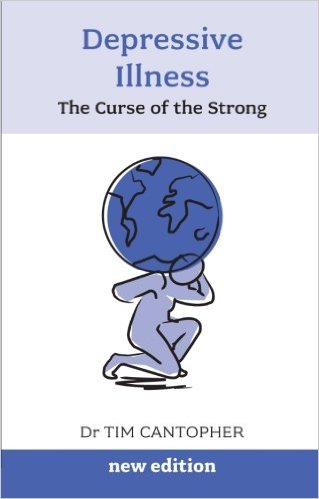Help for post-natal depression
Mother of two Louise Moxon, 40, reveals how post natal depression turned her from a successful businesswoman with a bubbly personality into someone consumed with anxiety and despair. My first pregnancy was easy. I worked right up to my due date and my daughter was born on 28 November 2004. The delivery was normal and for the first few weeks I was fine. But at ten weeks when I was preparing to return to work, the nanny left suddenly. I found someone else but I felt an unbelievable pull to stay with my baby.
My business partner had returned three months after the birth of her child so I felt I had to do the same. There was financial pressure too. On day one, I felt horrible butterflies in my tummy and as the weeks passed it got much worse. I was desperately anxious about whether my baby was all right. I sat in meetings feeling not present. I couldn't concentrate. I felt full of despair.
Life was manic. I ran home in my jogging kit every night to put her to bed. One day I just had to leave a meeting. I told my husband “I can’t do this any longer”. Actually I couldn't do anything.
 My doctor diagnosed post-natal depression, referred me to a psychiatrist – which was daunting – and gave me a book called The Curse of the Strong (by Dr Tim Cantopher, Sheldon Press, £8.99). Chapter one was about striving for success and wanting everything to be perfect and orderly. I realised that - by my standards - having a baby meant I was completely out of control.
My doctor diagnosed post-natal depression, referred me to a psychiatrist – which was daunting – and gave me a book called The Curse of the Strong (by Dr Tim Cantopher, Sheldon Press, £8.99). Chapter one was about striving for success and wanting everything to be perfect and orderly. I realised that - by my standards - having a baby meant I was completely out of control.
The moment I grasped I had an illness I started to get better. But I did feel a sense of shame, that I wasn't a proper mother, that my feelings were unnatural. There were days I couldn't leave the house for fear of what might happen.
My family and friends were brilliant and acupuncture really helped to relax me so I slept much better. I started cognitive behavioural therapy (CBT). That helped me change my thought processes so I could turn round negative thoughts and make sense of them, rather than thinking this shouldn't be happening to me. I planned each day, almost hour by hour at first, which helped me regain some order.
I also went to a support group and found lots of other mothers had the same problem. It helped me understand I wasn't a failure.
As I recovered, I realised you have nothing without your health so I left my job in 2005. After losing a baby at six months in 2007, I became pregnant again. My son was born in December 2008. I started to feel depressed but this time was able to nip it in the bud. I knew I wanted to do something to help women going through similar problems so I set up Cocoon UK, a personalised service that matches experienced maternity nurses and nannies to mothers. All our staff are trained in post-natal depression.
Today, I am happy and healthy and so are my children.
Visit www.cocoon.uk.com for more information on post-natal depression and childcare services.
Association for Post Natal Illness, www.apni.org, tel: 020 7386 0868.
Our hard-of-hearing tester, Bill, 88, has ongoing problems with his expensive hearing aid so he keeps the simple, medically approved Behind the Ear Hearing Amplifier as back-up. ‘It hooks over the ear so it is very visible but it works fine and is good value. I had to read the instructions carefully to find how to adjust the volume.’ Behind the Ear Hearing Amplifier with two earplug sizes, a cleaning brush and storage case, £30.99 from www.goodlifeguide.co.uk, tel: 01635 588370.
 My new Messenger bag from the Healthy Back Bag Company is a big success. In watermarked nylon, with lots of zips and pockets, it is deceptively capacious (big enough for a tablet or small laptop) and very comfortable slung across my body so my dodgy back and shoulders don't take the weight. Plus it is more accessible than a backpack. The style is called Great Outdoors but is quite chic enough to run round town. In Olive, Caviar (nearly black) or Deep Jade, £55 from www.thehealthybackbag.co.uk.
My new Messenger bag from the Healthy Back Bag Company is a big success. In watermarked nylon, with lots of zips and pockets, it is deceptively capacious (big enough for a tablet or small laptop) and very comfortable slung across my body so my dodgy back and shoulders don't take the weight. Plus it is more accessible than a backpack. The style is called Great Outdoors but is quite chic enough to run round town. In Olive, Caviar (nearly black) or Deep Jade, £55 from www.thehealthybackbag.co.uk.

